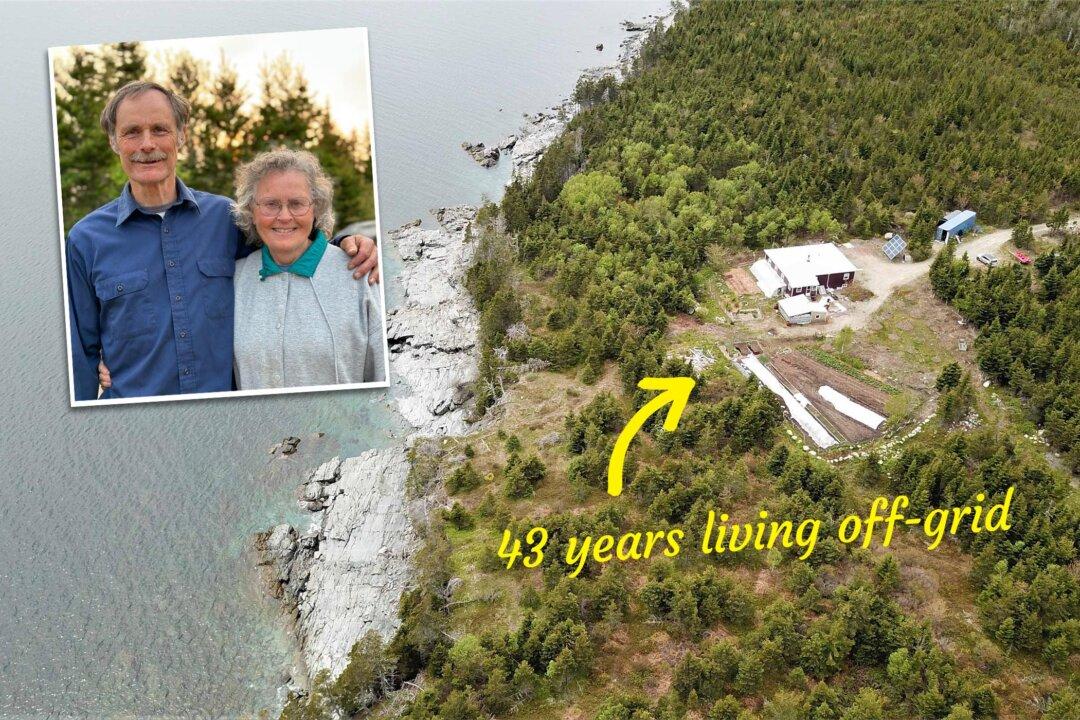An electronics technician from a Philadelphia suburb, who never expected to swap his 9-to-5 for living off-grid in the wilderness, has spent 43 years homesteading in the United States and Canada with his wife.
Together, they’ve built three homes in remote locations and have generated enough energy, food, and money to see them through retirement. They’ve even penned some of the most-sought-after books on how to survive off-the-grid and thrive in modern day America: “Off Grid and Free: My Path to the Wilderness“ and ”The Self-Sufficient Backyard: For the Independent Homesteaders.”





